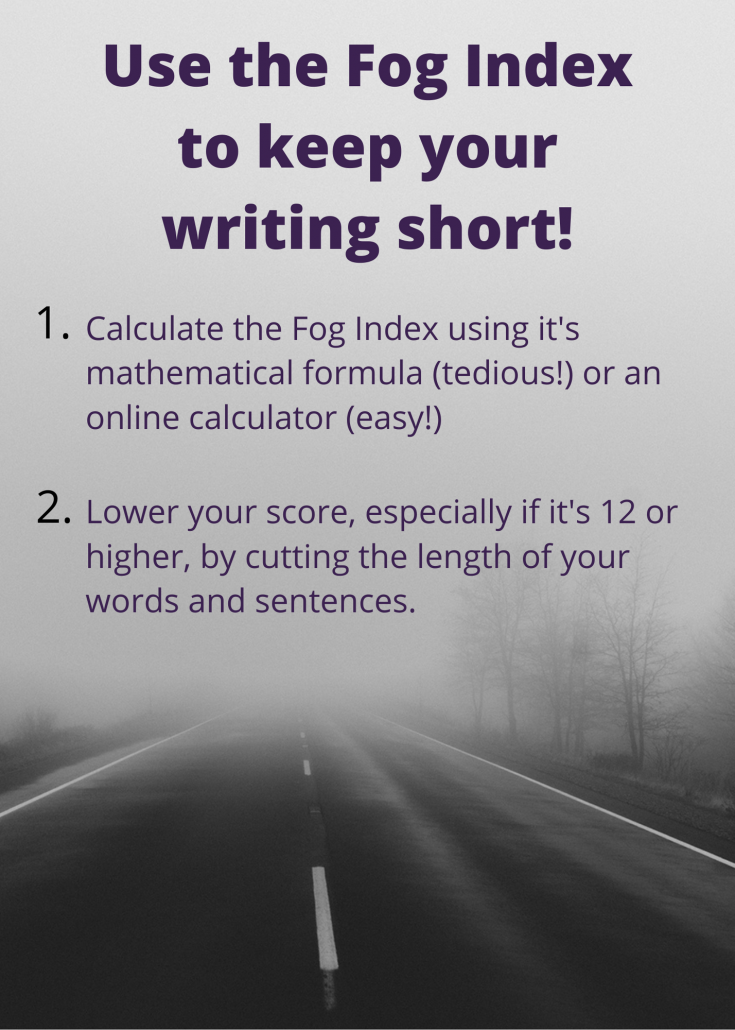Keep it short with the Fog Index!
Warren Miller, CPA, CFA, one of my longtime newsletter readers, urged me to remind you to write more concisely. As Warren wrote, “most of us overeducated people write sentences that have too many words, too many of which have too many syllables.” I admit that I’m sometimes guilty of this. And, I see lots of verbose financial writing.
Warren likes the Fog Index—also known as the Gunning Fox Index—to help you catch wordy writing. It measures how hard your text is to read, in terms of the number of words per sentence, and the use of longer words. Here’s an image of the index formula that Warren sent me:

Easy ways to calculate the Fog Index
Don’t feel like calculating the Fog Index yourself? These websites will calculate the Fog Index for you. For example:
- Gunning Fog Index—I like that this website highlights words of three or more syllables. That helps you identify words to simplify. However, the website’s syllable detector makes mistakes. For example, it identified “weighs” as a word of three or more syllables. You and I know there’s only one syllable in “weighs.”
- Readability Formulas has a page dedicated to the index. It also offers an array of other readability calculators.
The two websites’ calculations must differ because the Gunning Fog Index page yielded a score of 8.855, while Readability Formulas rated my sample as 9.3 and “fairly easy to read.”
How to lower your score
Readability Formulas says that a Fog score of 7 or 8 is “ideal,” and “Anything above 12 is too hard for most people to read.” So, what can you do if your score is too high?
Start by shortening long sentences. Sometimes you can cut a long sentence into two or even three pieces. Other times, you’ll need to rethink your approach to long sentences. Perhaps you can delete unnecessary adjectives or adverbs. Another option is to insert a short sentence to break up the flow of long sentences.
Then, look for words that are unnecessarily long or technical. Perhaps you used the word “rodomontade” or “fanfaronade.” Substitute “boasting,” and you’ll dramatically increase reader comprehension, in addition to cutting word length.
Another way to lower your score is to use the tool that I discuss in “Free help for wordy writers!”
However, please remember that shorter doesn’t always mean better. Emphasize reader-friendliness over shortness.

